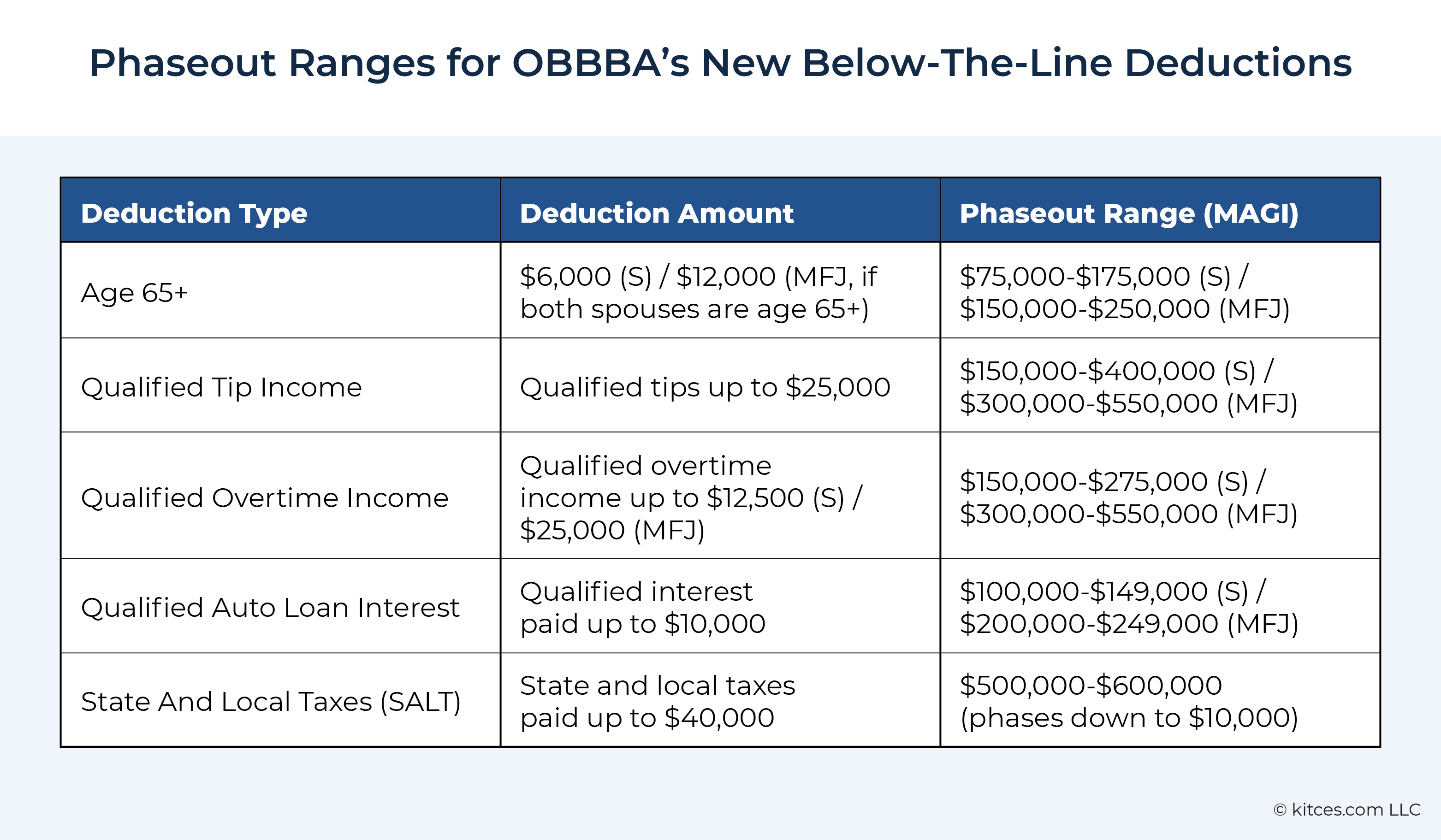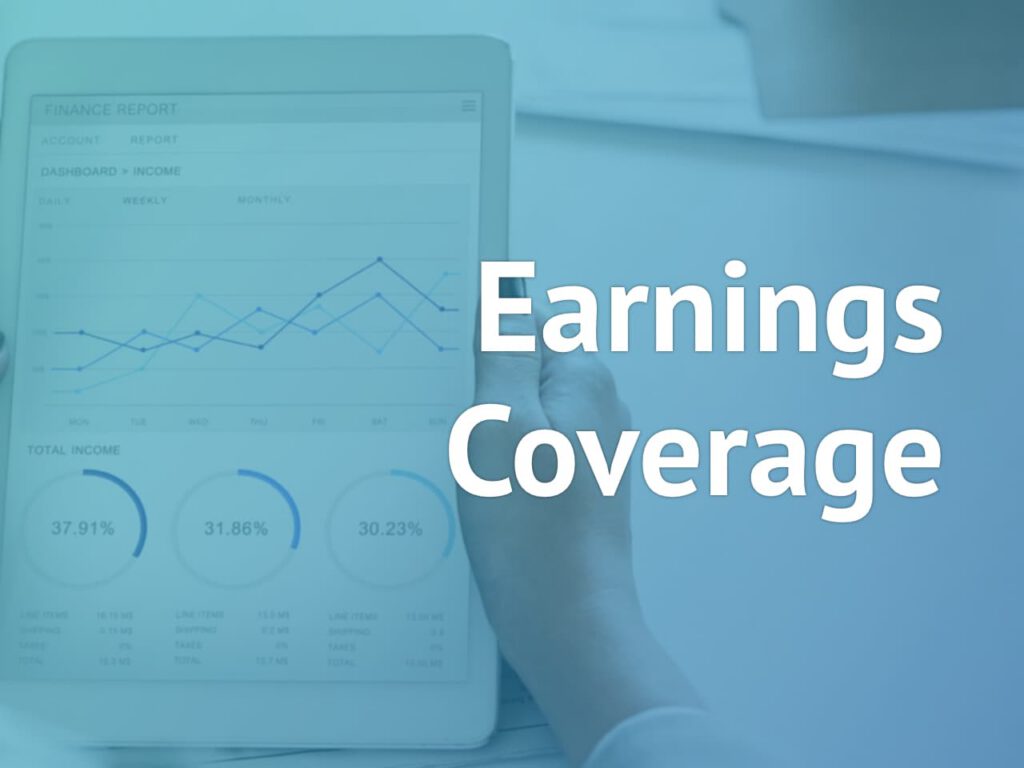Want to start investing in real estate? Then you’ll need an easy way to get into the game: no huge fix and flips or pricey renovations, no 20-unit apartment buildings or hotels. If you’re starting now (or starting over), we have four real estate investing strategies that still work in 2025 (and most likely will in 2026) for beginner-friendly budgets and solid returns.
Tony Robinson, host of the Real Estate Rookie podcast, has heard from hundreds of beginner investors and helped many of them grow and scale. He sees that things are changing, and they’re changing quickly. Dead strategies are making a comeback, popular properties are no longer as profitable, and beginners are feeling more analysis paralysis. How do you actually get your first deal done? Don’t make it so hard!
Tony is sharing four beginner strategies that rookies can use to start investing. From low-money-down homes that make average Americans millionaires, to the big cash flow (with small properties) strategy that could replace your job, and even a 100% passive investment many rookies don’t think they qualify for.
This could be the day your financial future changes forever. So, are you ready to invest?
Dave:You want to invest in real estate, but you’re not sure where to start? Don’t worry. We have all been there and I understand that all the information about real estate investing out there can be somewhat overwhelming. Today. We’re simplifying it. Rookie investors, these are the strategies that are working in the current 2025 housing. Hey everyone, I’m Dave Meyer. I made my own rookie real estate investment in 2010, and now 15 years later, I’m the head of real estate investing at BiggerPockets. Today on the show I’m joined by an expert in early stage investing real estate, rookie podcast co-host Tony Robinson. Tony, thanks for being here, man.
Tony:Dave, I appreciate it, man. I’m super excited to dive into what’s working for rookie investors today.
Dave:It feels to me that the strategies that work for rookies maybe even a couple of years ago have changed a little bit. Is that what you’re seeing?
Tony:I think there’s definitely been a shift in the level of preparedness someone needs to do well today. I think the strategies maybe still work, but how you jump into them and the bar that’s needed to be successful has maybe
Dave:Shifted. Oh, okay. I like that perspective. Well, let’s just jump right into that. So tell us a little bit more about what you’re hearing from the rookie community and maybe just extrapolate a little bit on what you just said about level of preparedness.
Tony:Yeah, I think there’s one big thing, Dave, that’s swirling around the minds of a lot of folks who are looking to get started and that question is, is now a good time to start investing in real estate? I think that’s the biggest question that we hear now more than ever before, and it makes sense, right? I mean, obviously the data better than anyone, but there’s the interest rate environment that we’re in. There’s the inflationary period that we just went through. There’s the affordability issue that we’re dealing with. So there’s definitely a lot of pressure on being a successful real estate investor today, and because of that, there are a lot of folks who are asking, does it even make sense to get started? But I still firmly believe, and we’ve interviewed enough, Ricky Investors, I’ve talked to enough seasoned investors, and I still believe that the firm answer of when is the best time to invest in real estate is yesterday. Like let’s say that interest rates when they were really high and people were waiting for interest rates to drop, I think that was such a bad decision because if a deal works at a seven and a half percent, 8% interest rate, if you’re still cashflow positive, that deal is only going to get betterWhen rates go down to seven or six or if we get back down into the fives, if you were to wait on that deal, by the time the rates get down to seven or six or five, you’re now competing with 30 other people for that same property and maybe spending even more on that deal than what you would’ve spent at a seven or an 8% interest rate. So I think people just need to understand that we can’t time the market, and the goal is can we find a deal today that works and if it checks all of the boxes and let’s move forward with it.
Dave:I couldn’t agree more. I think there are trade-offs in every kind of market, and people felt it was easier to get in 2022. They look back at that and say that now, but I don’t know if that was true. As a rookie investor, you would have to be super aggressive with your bidding. You wouldn’t be able to go look at the properties you were waiving contingencies. There were trade-offs with that too. So I totally agree with you that if you can find a deal that works, then you can do it in really any kind of market. I’ll just add that it’s okay if you’re concerned about the market to make your criteria about what works a little bit stricter and to be a little bit more conservative about the returns that you want to get on your first deal to make sure that you protect yourself in some downside case. But I think it’s as good a time as any to get into real estate. There’s always going to be barriers, there’s always going to be challenge and take some work, but I actually think for rookies, the lack of competition could be something that’s honestly better than a super fast appreciated market.
Tony:Dave, you just hit on something that I think is super important. I feel like right now we are in a phase in the real estate cycle where as buyers, we have more leverage than what we’ve seen in the last five years or so. And I was just talking to an investor yesterday and they were buying their first short-term rental and they were able to negotiate a $100,000 discount. What on a property? Unreal. Yeah, $100,000 discount on the property three years ago, four years ago, that would’ve been impossible.
Dave:It would’ve been the other way. You
Tony:Pay a hundred over asking you’ve been a hundred k over asking. So I think for the people who are looking to invest right now, just get the offer out because you don’t know the sense of the seller or what their motivations are, and if you just get the offer out, you might find someone who’s maybe at the point to really negotiate. So that’s the first part, Dave, is just I think that we are in a space where it is conducive for folks who are looking to get started.
Dave:Alright, so let’s talk a little bit about preparedness. So you mentioned that at the top of the show. Can you explain a little bit more about what you mean by that?
Tony:First is that I think that what holds a lot of would-be investors back is maybe a mindset issue and not necessarily a technical or skillset issue.When I talk about mindset, it’s really kind of two separate things. One is the dreaded analysis paralysis that so many people deal with. What I always tell folks is that if you’re listening to the bigger BiggerPockets podcast and as you go through and listen to the interviews, you’re kind of nodding your head like, yeah, I’ve heard that before. Yeah, actually I do remember. Yeah, that’s what this term means, and you’re able to really track and follow along with 90% of the conversations. Chances are it is analysis paralysis you already. So I think that’s one piece. It’s just knowing when do you take the step from education to action and it’s when there’s a certain point where all of the information starts to sound the same. So I think that’s one piece on the mental side. And the other piece on the mental side, Dave, is this inability to be uncomfortable.And I see a lot of rookie investors who have invested all the time, effort, and energy to educate themselves and they’ve even maybe started talking to agents and lenders and maybe they’re even putting out offers. But when it comes time to actually close on a deal, there’s this hesitation and the hesitation is really based on the fact that they’re uncomfortable. And what people have to understand is that if you’re doing something new for the first time, anything of meaning, at least it’s physically impossible to be comfortable when you do that. What that means is that it’s physically impossible to be growing and to be comfortable at the same time. So we have to let go of the notion that, hey, I’m only going to make this decision of getting started when I’m comfortable because the truth is you’ll never get to that point. So I think if we can marry those two things of understanding what really drives analysis paralysis, understanding what really makes people stop, and you can put those two things together, that mindset will get you through and actually help you get into that first deal.
Dave:I love that point about being uncomfortable. I’m going to curse right now, but my wife calls them f*cking first times. She’s just like, every time you do something for the first time, it sucks, but you just got to grin and bear it. You just have to know that it’s going to be worth it. If you are clear about your goals and that you want to be in real estate, that you want to pursue financial freedom, there is no painless, there is no discomfort free path to that for anyone. And so it’s a question of what you want more. Do you want comfort or do you want the long-term results? I think that’s a perfect way of putting it.
Tony:Have you met any person who has retired off of their first deal?
Dave:No,
Tony:Of course not. As far as I know, it has never happened. Yeah, no. And I think if we frame the first deal in the right way, it takes off some of that pressure. So many people want that first deal to be a home run,And I think when we put that pressure in the first deal, it makes the first deal less likely to happen. But if we frame the first deal as a learning opportunity, if we frame the first deal as the foundation to help us get the second deal, to get the fifth deal, to get the 10th deal, it becomes a lot easier to say, okay, I’m probably going to make some mistakes. It’s probably not going to go according to plan, but that’s okay because I’m just really here to learn. And when we frame it that way, it makes it so much easier to get started.
Dave:I’ve been saying this recently to people in a different context that the problem with real estate investing right now is not the market. It’s a matter of expectations. And I think that goes along with what you were just saying, that people are expecting the returns of a super experienced investor in ideal market conditions, neither of which you have. And that’s okay, that’s fine. You are a rookie investor in a more balanced kind of market. And so trying to hit a single or a double is plenty. It’s really good. I guess I would just liken it to every other job. Imagine if you were rookie entry level and you just walked into a corporation or a job and you’re like, I want to be the president of this company, or I want to see your role. You have to start at the bottom a little bit and work your way up and sometimes your first deal can turn into a home run.I think it’s just like the expectation of that you’re going to walk in and be amazing at this and do this perfectly, does hold more people back. It hurts more than it helps having that unrealistic expectation. But I do want to turn our conversation here a little bit to tactics and what people should be doing to actually go achieve their first deal. But we got to take a quick break. We’ll be right back. Alright, let’s talk about something. We have all dealt with funding that takes forever. You got the property lined up, the numbers make sense, everything’s ready to go, but the funding, that’s often where things start to fall apart. Either it’s too slow, too rigid, or just way more complicated than it needs to be. But here’s the thing, it doesn’t have to be this way. I want to tell you about express capital financing.They understand how investors operate and they’ve built a system that works for us. Quick approvals, flexible timing, and none of the endless paperwork that slows things down. Whether you’re working on a flip, buying a rental, or tackling a big commercial project, they give you the speed and flexibility you need to make it happen. Great deals don’t wait and neither should you get your funding locked in by going to express capital financing.com or click the link in the description. Trust me on this one. It’s going to save you a ton of headaches. Visit express capital financing.com/biggerpockets for more information.Welcome back to the BiggerPockets podcast. I’m here with Tony Robinson talking about trends that we’re seeing with rookies. Before the break, we talked a little bit just about the mindset that can help newer investors get into the market right now, but Tony, I want to talk to you a little bit more about some of the tactics that you see working because the market has shifted and although I think we agree that it’s still a good time to get into your first deal, maybe the things that you look for, the kind of deals that you’re doing, your underwriting changes. So what are you seeing on that front?
Tony:Yeah, I think there’s a few strategies that have become slightly more popular over the last couple of years. Now that doesn’t speak to the effectiveness of the other strategies, it’s just that maybe some are a little bit easier for a newer investor to get into. So I think one of the ones that we’re seeing really have a bit of a moment right now is house hacking. And obviously house hacking has been around for a very long time, but I think even more people are looking to explore the opportunities of house hacking because it is a lower cost way to get into an investment property while also simultaneously reducing your living expenses.So we’re seeing a lot more people get into house hacking, but I think maybe the caveat there, Dave, is that when people think house hacking, they maybe think I’m going to buy a duplex and have someone live next to me. That’s one way to do it. But we’re seeing people do it in a lot of different ways as well where we have some folks that are buying single family homes and having an A DU in the back, and that’s a way to still feel like you’ve got your own space, but now you’ve got this income producing asset on the backend. So house hacking can take in a lot of different shapes and forms, but I think that is one strategy that’s really encouraging people to get into real estate investing.
Dave:I totally agree. I think for what, 80% of investors, if you ask me what the best way to get into real estate investing in, I would say house hacking. The only caveat is if you live in super expensive markets, sometimes doesn’t actually lower those living expenses,But I’ve been super encouraged by this because I primarily invest in small multifamily properties. The ones that you’re talking about buying a duplex, living in one side, renting out the other, and the prices of those are getting better. I have to say that those deals are more of them are coming on the market and they’re less competitive than they have in years. I feel like for, I don’t know, I had a really hard time buying them from about 2021 to 2024, and now I’m seeing those deals come on the market every day. So I’ve just been encouraged, not just because it makes so much sense from a strategic standpoint, but I think that’s one where the market is actually with us a little bit and could provide some tailwinds for anyone who’s interested in that strategy. What other things are you seeing work right now?
Tony:I think another strategy that’s really kind of caught fire as of latest co-living,And think of this as basically rentals by the room, right room rentals. So instead of going out and buying a three bedroom home and renting it out to one family, you would go out and buy that same three bedroom home, but you would rent out each room individually. And there’s layers within this. I know some people who do this to the extreme where they’re taking a three bedroom home and they’re turning into a six bedroom home because they’re getting rid of the living room and the dining area and they’re just cramming the space with living spaces. I know people who are doing it as maybe a combination of room rentals and short term where they’re actually furnishing every single room, but the idea of basically taking a traditional single family structure and having multiple tenants inside of it is the basic concept. And you’re really, really able to, in many cases, significantly increase the overall revenue of that property. Sometimes 2, 3, 4 x is what we’ve seen from some of the folks we’ve interviewed with very little additional overhead. Now, obviously from a management perspective, you’ve got to be able to keep some personalities in check and make sure that people can live together cohesively, and there are strategies for that, but I think there’s a lot of upside in generating more profits with it.
Dave:In any market, there’s always some strategy or tactic that’s sort of new, and if you get into it relatively early, you can have outsized returns. I’m sure you see the same pattern in short-term rentals that happened a couple years. There’s an inefficient market, no one was doing it. If you got in early, we’re a little uncomfortable and took a risk, you could do that. And I feel like we’re in that moment with co-living right now because I’m not happy about this, but rent is very unaffordable right now, and so there is demand for this kind of living. And if you can provide that type of living experience, hopefully a good one that you could definitely make some money out of that. Do you know many people who are doing this?
Tony:Man, we’ve interviewed Miller McSwain, the Nasims based out of the Pacific Northwest. They’re also doing this. There’s a few other folks that we’ve interviewed that are doing it, but all across the country, we’ve interviewed people in different pockets of the country and it seems to be working just nationally.
Dave:Is it a significant operational property management burden? Do you think?
Tony:That was my concern as well. Right, and when we interviewed Miller, we did a really deep dive into that specific question and his answer was not really. And the reason why was because he did a really good job of setting up expectations for folks as they came in. So the lease was very clear about how they’re going to interact with one another and who was responsible for what, and then he did things like offered a cleaning service as part of their rent. So no one has to argue about who’s going to clean this and do that and do that.
Dave:That’s a good
Tony:Idea. He would host events basically for all of the tenants where he’d buy pizza and Hey, it’s pizza night you guys, and I’ll go hang out in there. So doing things that he could to try and build some of that comradery amongst the tenants, but he’s there for the most part. It’s been a pretty smooth process. I mean, every type of management is going to have its headaches, but there wasn’t a significant uptick in issues or management burden with co-living compared to a traditional long-term
Dave:Rental. Okay, cool. Well, I like these two strategies. I want to hear what else you got for us, but we got to take one more quick break. We’ll be right back. Welcome back to the BiggerPockets podcast here with Tony Robinson talking about rookie strategies that are working in 2025. Talked about house hacking, co-living, what else is on your list, Tony?
Tony:This is one that I think a lot of new investors don’t even think about. House hacking is something that’s come up before. Room rental is something that this may be come up before in rookie circles, but the third strategy is private lending. The basic concept is that instead of someone going to a bank to get the money, they need to take down a deal. They would go to you and you would lend them the funds they need to execute on this transaction and you would get a guaranteed rate of return. Now whether or not that money actually comes back to a different question, but the rate that you’re earning is at least guaranteed, and then they’re going to go out there, they’re going to fix and flip this house, they’re going to do this spur, whatever it may be, and then they’re going to pay you back all of your principal plus your interest. We interviewed Devon Kenard, also a big friend of BiggerPockets, and he was walking us through his model as a private money lender, and the annualized returns were insane. Let’s say someone goes to you as private money lender, and this was Devon’s strategy. He would charge points upfront,I believe it was maybe one or 2% of the loan upfront. He would then charge you 10 to 12% annualized interest,And then he even had it set up to where he was collecting via aach H withdrawals from your bank account every month on the first. So he wasn’t even chasing you down to get his payments. And when you’re able to recycle money with points with that full percent annualized interest, if you can do that multiple times a year, I mean that’s a really, really big return. It huge. Yeah. So I think a lot of rookies think they need massive amounts of capital to get started, but honestly, if you’ve got low six figures of cash sitting in some sort of account, that is a good starting point to go out there and lend money to folks who are already actively doing it. And Dave, the benefit to a rookie investor is that one of the biggest challenges in the market that we’re in today is just finding the right deal is having the crews to execute.And if you can bypass all of that, go partner with someone who’s already got all of those systems in place, all of your work is done at the front of the deal where you’re just like, you’re going to vet the deal, you’re going to vet the borrower, you wire in your funds, and then you do nothing for three to six months, and then you get back a bigger check at the end. It’s awesome. It’s a very, very passive way to generate really, really outsized returns with a not that big amount of capital to start with.
Dave:I love it. I think most people follow this traditional trajectory throughout the real estate career where they start super active and go towards a more passive, but there’s no reason you can’t start with something that’s relatively passive like private lending. And Tony’s right, you do need some amount of money. You can’t borrow money to lend it out. You have to have some capital.I personally do some private lending. I do it the lazy way. I don’t do what Devon does, which is awesome. He actually goes out and originates loans. He finds the operators, he underwrites the deals, he does the servicing of the loans, and he earns, I think he said like 18% annualized returns, and that’s cash. That’s just straight cashflow. It’s not tax advantage like other stuff in real estate, but it’s still, that’s unbelievable. But there are also other ways to do this. I personally have bought individual loans. So sometimes someone like Devon or their big companies underwrite these loans and they want to make points. The points on the loan upfront is actually how you make the highest rate of return. And so once they’ve originated this loan, they’ll sell off the interest payments to another investor. I buy those sometimes because I don’t have time to go find those deals.You could still make 10, 11% on those deals doing as close to nothing as possible in real estate. And of course there’s risk that the operator doesn’t perform, but if they do usually get the property at 70, 80 cents on the dollar, so there’s a recourse for you there because you at least have collateral. So I would encourage people to look at that. And then there’s also even debt funds that’s super passive, but you can still make nine, 10, 11% in a debt fund if you just want straight cashflow. It’s a really good way to start. Or I think sometimes for people it can be great because these loans churn quickly. If you’re between deals, if you’ve done one deal and you’re waiting to save up some money for the second deal, or if you’re house hacking and you have to wait a year before you’re going to move, put your money in a debt fund for nine months and make 11% on it, it’s way better than a savings account or a bond or whatever. So I think this is a great option for anyone. It sounds like a different business. It is a little bit of a different business, but there’s no reason rookies can’t get into it. And then the last thing I’ll say is that BiggerPockets actually is a great book. I read it before I started doing this called Lend to Live. If you’re interested in this, you can check that out as well.
Tony:Devon also mentioned that book as his framework for getting started, but I just want to comment, Dave, because you also mentioned the self-directed IRA, and I know a lot of folks who use that as their vehicle to private lend because, and again, we’re not experts. Go talk to someone who knows how to really talk you through the legalities of this. But with the self-directed IRA, you can’t fund your own deal, so you have to put it to work in someone else’s deal. And I’ve got private money lenders that we’ve been working with for years now, Dave, and all of their funds come from their self-directed IRA. So if you are one of those folks who has those funds that in that kind of account, you could go earn way more by putting into real estate deals for someone else.
Dave:All right, great. So private lending number three, you got any more for us?
Tony:The fourth one, and this one is only because I’m biased, but the fourth one is short-term rentals. Now, I think it’s important for us to have this conversation, Dave, because like you mentioned, coming out of COVID, short-term rentals were the co-living of 2021
Speaker 3:And
Tony:2022, right?
Speaker 3:Yeah.
Tony:Where like you said, there was inefficiencies in the market, really outsized returns. And I think what that did was it brought a lot of people into the industry that probably had no business being in that industry. I think in my lifetime, we’ve seen the dotcom bubble in 1999, that timeframe, 2008, we saw the housing bubble and on a much, much smaller scale, there was a bubble in the short-term rental
Speaker 3:Industry
Tony:Where this immense amount of interest drove up the revenue potential. But then it also ended up driving up the price of real estate. And I think that bubble has popped. And just like when the internet bubble popped, the internet didn’t just go away. It’s not like the internet just stopped existing.It just became a more mature industry. When the housing market bubble popped, people didn’t stop buying real estate. It just kind of weeded out the folks who shouldn’t be there. And then the folks who stayed are the ones who built businesses in a more mature environment. So I think we’ve entered that phase in the short-term rental industry where the folks who are dabbling, they’ve exited, and the folks who are still in it are the people who are doing it with the right intention, with the right systems, with the right processes. And I think you’re seeing that because the level of professionalism that I think you see on the platform now from the hosts that are still around significantly higher than what it was a few years ago, and this is broad strokes nationally speaking. So I think we’re still in a phase where done right, short-term rentals can still outperform. And then don’t even get me started on the tax benefits because that’s an entirely different conversation around why it’s so important.
Dave:Yeah, I totally agree. I’m glad you brought this up. I wanted to ask you about this. The pendulum just swings back and forth with some of these things, and I’m just noticing it in my own research that a lot of the markets that got overheated, I’ve seen significant declines in Tennessee, for example, and just picking on them. But that market got insane for short-term rentals, and now you’re seeing declines. But if you start looking at the numbers, they’re starting to look okay. Again, this is a natural correction, this is the definition of a correction, is that things got over hot and now they’re correcting back to a more normal level and it makes buying a little bit more attractive. And I only have one short-term rental. I’m far from an expert, but my anecdotal experience is that I bought in this subdivision, and when I bought it, I think I was the fourth short-term rental. There’s 300 houses in the subdivision.Then a couple years ago there was probably 60. Now it’s back down to 30. So it’s kind of like coming back down. I was thinking about selling it, and I’m kind of like, oh, maybe this is actually going back in my favor. If I hold out, this might actually work for me. So I totally think that short-term rentals are very viable for people who want to be in that industry, who want to be good at that. Because I do think we had the classic sign of a bubble, which is what the economists call irrational exuberance. That’s exactly what happened. People were being irrational and they were paying crazy prices for properties that they shouldn’t have doing a bad job, renting them out and then getting mad about it, and now they’re going to sell it. So I think we’re coming back around.
Tony:Yeah, I mean, the last thing I’ll share on that, Dave, is that I think just like we talked about how slipping earlier and be more conservative in your underwriting, I think for folks who are doing short-term rentals today, number one, pick markets with strong underlying economics. Don’t go buying a market just because you like to vacation there. Actually make sure that it can be the foundation for a good investment. Number two, do not underestimate how much money goes into actually setting up the Airbnb. I think a lot of folks spend all of their capital on acquisition and they spend zero on actually getting it to turn into a functional and profitable Airbnb, and then they’re upset because it doesn’t reach its potential. But I would rather you buy a property at half the price and then invest that additional capital into setting the Airbnb up.A good rule of thumb for setting up an Airbnb, probably 30 bucks a square foot. So if you’ve got a 1000 square foot house, 30,000 bucks to get it outfitted to be an Airbnb. Third thing I’d say is that you’ve really got to focus on the management and the pricing. You can’t set and forget an Airbnb and the bar for what it means to be a good host is significantly getting higher before Airbnb rates on a scale out of five, if you’re a 4.75, you were still okay. Now you’ve got to be like a 4.9 to really be in the top echelon of hosting. So you’ve got to really, really choose the right market, invest a lot of time, effort, and energy into getting it set up, and then really, really make sure that your management fundamentals are sound as well.
Dave:Awesome. So we got house hacking, we got co-living, private lending and short-term rentals, all great things, tactics, strategies that absolutely can work for rookie investors right now. And personally, I just think the deals are going to be more and more abundant, at least over the next couple of months as we see it shift to a buyer’s market. And I think that’s an exciting time to be a rookie right now. Tony, before we get out of here, do you have any last advice for people who are eager to get into the market right now but are just struggling to take that last step or any last thoughts here?
Tony:I think really what we said at the top of the show, Dave, is that you’ve really got a choice. You can continue to live the life that you’re currently living doing, the things you’re currently doing, receiving the benefits you’re currently receiving, that is very much an option for you. But if you really want to change the trajectory of your life, of your financial future, it can only happen if you do something different. And as much as there is importance in educating and listening to podcasts like this, at some point you’ve got to draw a line in the sand and say, today I’m actually doing something right? Go out there and go talk to an agent, go out there and get pre-qualified trying to get some offers out. I think one of the most impactful things that people can do is I call this our 30 deals in 30 days challenge, 30 deals in 30 days.I would encourage every single person who’s listening to go out there and underwrite at least 30 deals in the next 30 days, just one deal a day for 30 days. And I guarantee that at some point during those 30 days, there’s going to be at least a few of those deals that you’re like, man, this one actually kind of works, maybe. And then maybe, right? And then when you find that deal, just get the offer out. So I think that’s the biggest thing, David. We have to shift the focus from education to action, and the sooner you can do that, the faster you’ll see results.
Dave:Absolutely. I love that. And I like the idea of just coming up with a, even if it’s an arbitrary deadline for yourself, I’m going to do this by this day and also share that deadline with people. There’s that old saying, when you share goals with people, you’re X times more likely to achieve it. I think those things are really true. Tell someone you’re going to make your offer in the next 30 days and go out and actually underwrite these deals. It might sound like a lot, I promise you it’s not. Use the tools on BiggerPockets. They’re easy to do. If you’re like me, you’ll find it actually kind of fun to do and you’ll find yourself wanting to do it. But maybe I’ve a loaded that. But I do think that Tony’s absolutely right that finding the way what works for you to shift from education to action is the key for every single rookie. So Tony, thank you so much for joining us today and for sharing all of your amazing insights with us.
Tony:Dave, I appreciate you having me, man. For folks who want to learn more about me, head over to the Real Estate Rookie podcast from BiggerPockets, and if you’re on Instagram, you can find me at Tony j Robinson.
Dave:Awesome. Thanks again and thank you all so much for listening to this episode of the BiggerPockets Podcast. We’ll see you next time.
Help us reach new listeners on iTunes by leaving us a rating and review! It takes just 30 seconds and instructions can be found here. Thanks! We really appreciate it!
Interested in learning more about today’s sponsors or becoming a BiggerPockets partner yourself? Email [email protected].



























